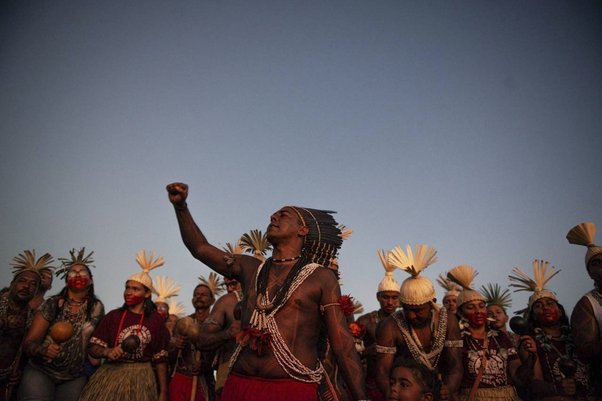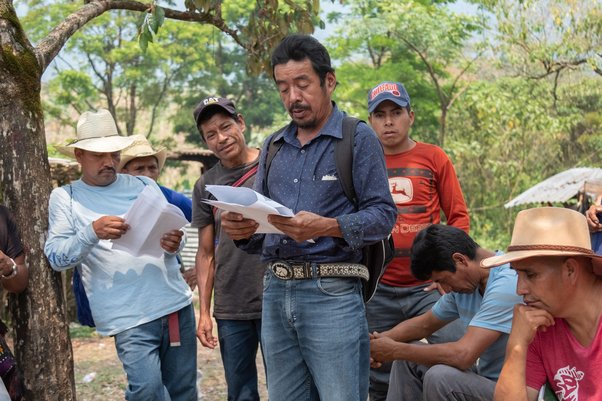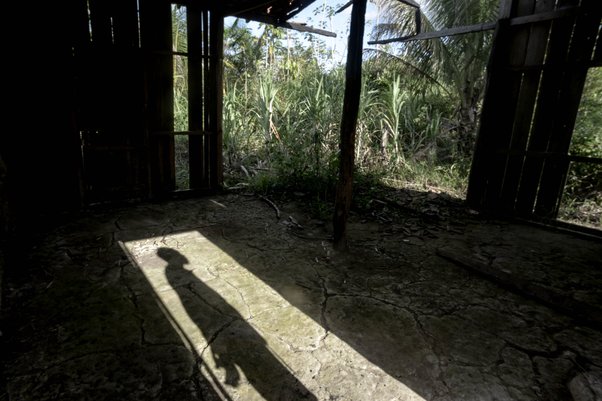Casa Socio-Environmental Fund is an organisation seeking to promote environmental conservation and sustainability, democracy, respect for socio-environmental rights and social justice through financial support to civil society initiatives and by strengthening their capacities in South America.
Our mission is to generate positive impact on very diverse territories, investing in the lives of those who care for them, and establishing connections between communities and organizations, including Quilombola communities in Brazil.
Quilombolas are Afro-Brazilian communities who were formed by runaway slaves during the time of slavery in Brazil. Many of the Quilombola settlements, known as quilombos, were established in remote and isolated areas, where the slaves could seek refuge and establish their own communities.
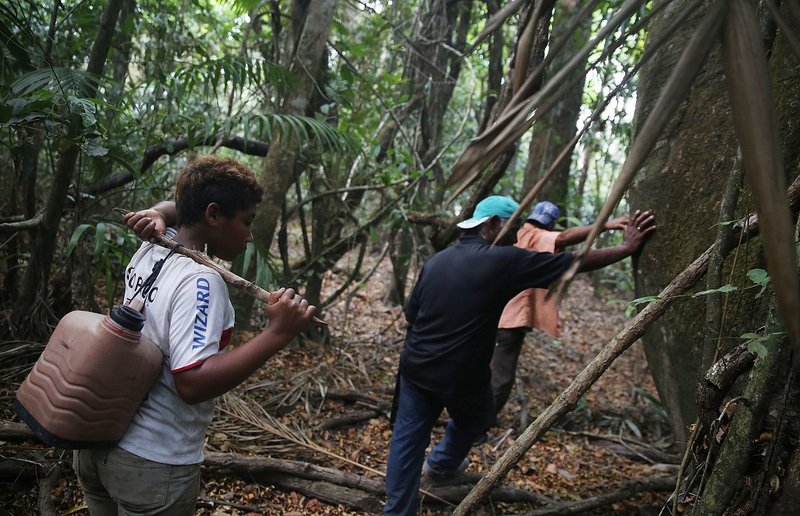
Quilombo residents threatened by ranching and logging in Brazil's Amazon. Mario Tama/Getty Images
Last year a key priority for Fundo Casa, as we are known in Brazil, was to highlight the importance of Quilombola and black leadership in climate discussions. To achieve this objective, we undertook intense preparation and advocacy in the run up to COP27 which took place in November last year. Our work included preparatory study meetings - in person and online - hearings, knowledge exchange with specialists, and the elaboration of a participation plan that outlined clear objectives for participation of Quilombolas at COP27.
Our hard work was successful in that Quilombola representation at COP27 almost tripled compared to COP26, with ten Quilombola representatives in attendance. All ten were members of the National Coordination of Articulation of Rural Black Quilombola Communities (CONAQ) – (including seven women and three men), and they sought greater recognition of the impacts that traditional peoples suffer due to climate change, besides advocating that their positions and demands be reflected in the climate negotiations.
At COP27, CONAQ brought attention to several issues related to the role of Quilombola communities in mitigating climate change, one of them being the lack of recognition of their agroecological practices. Quilombola leader Jhonny Martins, spoke during the panel discussion ‘South-South Cooperation: black communities of agroecological producers across the Atlantic Ocean’, and said, "We face many challenges to be recognized as rural producers. The main one is institutional racism and the denial of opportunities and conditions for us to make our production reach the big centers.” Quilombola family agriculture is a viable model of food production for Brazil and for the world, as indicated by the mapping and diagnosis of the Quilombola family agriculture situation in Caatinga and Cerrado territories.
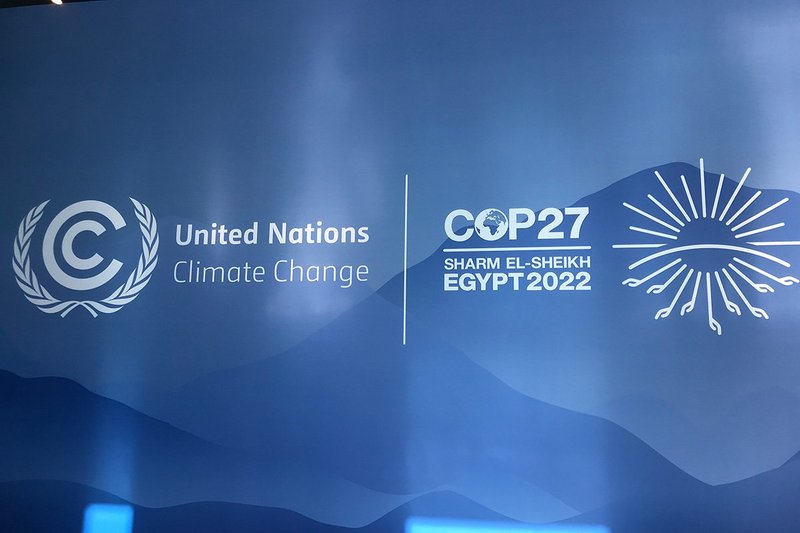
In another event held by CONAQ, with the theme "Transformation Action for Climate Justice: the Quilombola social struggle", the representatives defended the land regularization of Brazilian quilombos and highlighted how these communities use traditional knowledge and best practice in environmental preservation and production of food without use of toxic products. The Quilombolas questioned the fact that they are not included in the COP27 negotiations despite the fact that they play a key role in mitigating climate change.
We are talking here to ourselves. Where are the negotiation processes? Where are the government leaders? It's not just about resources. They need to listen to the people who live on the land. There is no way to negotiate without us
Another point highlighted by the Quilombola group is the exponential growth of private and state enterprises within the territories and also the State's slowness in titling lands. As Denildo Rodrigues de Moraes, Quilombola from Ivaporunduva, in the state of São Paulo, declared, "today in Brazil there are more than 1,200 enterprises in Quilombola territories. Whether from agro-hydro-business, real estate speculation, or military bases, the Brazilian Army is one of the biggest violators of Quilombola rights.”
It is important to emphasize that there are irregularities in the implementation of policies and processes for environmental licensing of projects and enterprises. There is non-compliance with the regulations related to the Quilombola situation, mistakes are being made in distinguishing between areas that are inhabited and uninhabited by the communities, and there’s confusion in the characterization of the sociocultural identity of the Quilombola communities. Violation of Quilombola territorial rights is clearly widespread throughout all phases of infrastructure development and commercial projects.
In some cases, the existence of Quilombola territories in the area of a project’s scope and its impact on communities is simply denied by the companies and agencies responsible for environmental licensing. As a result, the quilombolas are more exposed, which leads to an increase in conflicts and risks to lives, human rights and the safety of Quilombola defenders, as well as the environment and community territory.
The Quilombola delegation at COP27 demanded recognition by the Brazilian people, in addition to international attention to their relevance in fighting climate change. The Quilombolas stressed that there is no due recognition of their participation in the development of Brazil and, above all, the Quilombola communities are not perceived and valued as fundamental for environmental preservation.
Today in Brazil there are 6,000 Quilombola communities, spread throughout all the biomes and their rights must be acknowledged and upheld. We hope that our rights and demands are met by the new administration in Brazil which has been sworn in this month and that future national and international climate negotiations enable meaningful participation by and promote the needs and demands of Quilombolas.
